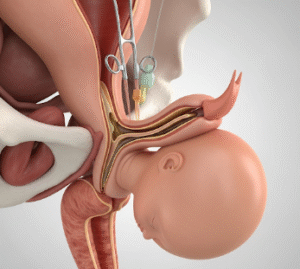Overview
Whipple’s Disease is a rare, systemic bacterial infection that primarily affects the small intestine but can also impact other organs such as the heart, brain, joints, and eyes. It interferes with the body’s ability to absorb nutrients (malabsorption) and can be life-threatening if left untreated. With early diagnosis and long-term antibiotic therapy, most patients can achieve full recovery.
What is Whipple’s Disease?
Whipple’s Disease is caused by the bacterium Tropheryma whipplei, which invades the lining of the small intestine and impairs nutrient absorption. The condition may also affect the joints, central nervous system, heart valves, and lymphatic system. It is more common in middle-aged white men and is considered extremely rare. Diagnosis often requires a biopsy of the small intestine showing characteristic foamy macrophages with periodic acid-Schiff (PAS)-positive inclusions.
Symptoms
Symptoms of Whipple’s Disease may develop gradually and vary based on which organs are involved. Common signs include:
Gastrointestinal symptoms:
- Chronic diarrhea
- Weight loss
- Abdominal pain and cramping
- Bloating
- Steatorrhea (fatty stools)
Systemic and extraintestinal symptoms:
- Joint pain or arthritis (often migratory)
- Fatigue and weakness
- Fever
- Enlarged lymph nodes
- Anemia
Advanced disease may cause:
- Neurological symptoms (memory loss, confusion, facial muscle twitching, seizures)
- Cardiac symptoms (endocarditis, murmurs)
- Visual disturbances
Causes
Whipple’s Disease is caused by infection with Tropheryma whipplei, a gram-positive actinomycete bacterium. While the bacteria may be present in healthy individuals without causing symptoms, the disease occurs when the immune system fails to clear the organism, leading to widespread infection and inflammation.
Risk Factors
Risk factors for Whipple’s Disease include:
- Middle-aged white men (most common demographic)
- Occupational exposure to soil or animals, such as farming
- Immunosuppression or weakened immune response
- Genetic factors affecting immune regulation (though rare)
Complications
Without proper treatment, Whipple’s Disease can cause severe complications, including:
- Severe malnutrition and wasting
- Neurological damage that may be irreversible
- Cardiac involvement (e.g., endocarditis, heart failure)
- Coma or death, especially if CNS symptoms are ignored
- Relapse of symptoms, if antibiotic therapy is stopped prematurely
Prevention
Because the exact mode of transmission is not fully understood and the bacterium is not highly contagious, there are no definitive preventive strategies. However:
- Early diagnosis and treatment reduce the risk of serious complications
- Awareness in high-risk occupations (e.g., farmers) may help in early symptom recognition
- Close monitoring of patients post-treatment to detect recurrence
Treatment Options in Korea
South Korea provides highly effective diagnosis and long-term treatment for Whipple’s Disease through its advanced infectious disease and gastroenterology services. Key treatment options include:
- Antibiotic therapy, typically beginning with intravenous ceftriaxone or penicillin for 2–4 weeks, followed by oral trimethoprim-sulfamethoxazole (Bactrim) for at least 1 year
- Nutritional support to address malabsorption and weight loss
- Neurological and cardiac monitoring in cases with systemic involvement
- Endoscopy and biopsy of the small intestine for diagnosis, with PAS staining
- Follow-up care for relapse prevention, especially in patients with CNS symptoms
- Available at top facilities like Asan Medical Center, Seoul National University Hospital, and Samsung Medical Center, with infectious disease specialists and gastroenterologists experienced in rare conditions
With prompt, long-term antibiotic treatment, most patients in Korea can achieve full recovery and prevent relapse.













